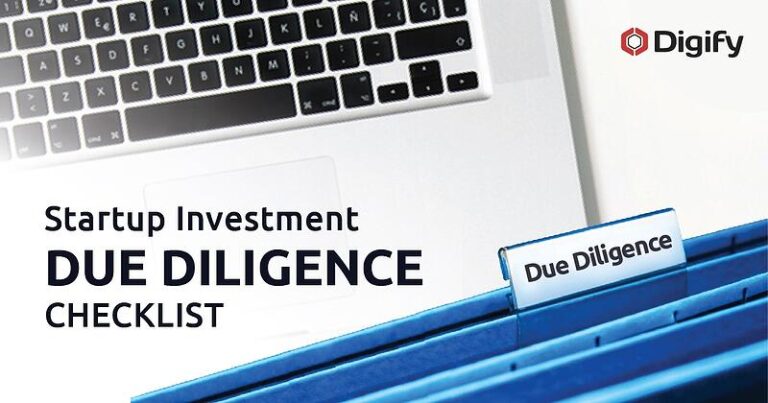
生物技术初创企业的运营环境充满了高风险,先进的科学与复杂的商业决策在此交织。目前只有不到 10% 获得了 A 轮融资,因此从发现新药到获得市场批准的过程中,每个开发阶段都需要在正确的时间获得正确的资金支持。.1
在早期发现阶段,引导基金和天使投资对启动研究至关重要。随着临床前试验的推进,获得种子基金对于证明概念和开发有前景的疗法至关重要。当您进入临床试验阶段时,成本可能会急剧上升,这时就需要A轮和B轮融资来资助新药或治疗方法的开发和测试。在后期阶段,如将产品推向市场,可能需要 C 轮融资来扩大生产规模和管理监管障碍。.
然而,吸引投资者不仅仅是拥有突破性的科学。保护知识产权(IP)至关重要,生物技术初创企业必须仔细权衡商业秘密与专利的优势。专利虽然能在有限的时间内为公众提供保护,但也会泄露解决方案的细节。专利还需要大量资源来维护。.
另一方面,商业秘密可以让你保持专有知识的私密性,但如果泄露或被盗,就会面临没有法律保护的风险。投资者会仔细评估你的知识产权战略,因为何时申请和激活专利会极大地影响你的长期竞争力。.
随着公司发展阶段的不断推进,数据安全已成为筹资过程中的一个重要方面。投资者希望确保您的敏感研究、患者数据和知识产权(无论是已获专利还是作为商业机密保存)不被泄露。一次安全漏洞就可能危及您的数据以及您与投资者和合作伙伴建立的信任,从而可能阻碍临床进展和长期合作关系。.
在本文中,您将了解生物技术筹资的主要趋势、如何应对每个发展阶段的独特挑战,以及围绕知识产权保护和数据安全的决策如何成为获得和保持投资者信心的关键。掌握了这些要素,您就能让自己的生物技术初创企业在激烈的竞争中脱颖而出。.
4 影响 2024 年生物技术筹资的当前趋势
生物技术正在迅速发展,推动该行业发展的资金动力也在不断变化。随着新兴技术对传统医疗保健模式的颠覆,获得合适的投资已成为生物技术初创企业面临的挑战和机遇。.
了解这些趋势对于使您的公司在这一竞争环境中处于领先地位至关重要。以下是 2024 年重新定义生物技术筹资的四大趋势:
#1 - 历史性的投资高潮
到 2024 年中期,美国和欧洲的投资机构将筹集到 18 亿美元的风险投资资金。.2 CRISPR 技术、合成生物学等技术的进步,以及投资者对该行业长期潜力的信心,推动了这一行业的发展。.
为生物技术提供资金的领域正在不断扩大。除了传统的风险投资外,企业风险投资部门和高净值家族办公室也开始参与其中,使寻求利用生物技术产业的投资者队伍更加多元化。对于初创企业来说,这意味着现在是提出大胆、有影响力的想法的最佳时机。.
#2 - 风险投资依然领先,但有所变化
风险投资(VC)仍占主导地位,约占生物技术投资的 65%。.3 不过,现在的重点发生了变化--风险投资公司开始瞄准风险较高、具有突破性的技术,如生物工程和新一代基因疗法。.
2024 年的主要区别是什么?风险投资家的目光已超越了药物研发。他们正加倍关注可用于医疗保健领域多种应用的平台技术,例如基于人工智能的研究工具,这让生物技术初创企业能够提供多样化的产品,并最大限度地吸引投资者。.
对于初创企业来说,提供可随行业需求发展的多功能技术可以增加获得早期融资的机会。.
#3 - 政府与私募股权投资:不可能的盟友
2024 年,政府拨款与私募股权(PE)之间的合作将重塑生物技术筹资。传统上,政府拨款一直是早期研究的基石,为大流行病防备和抗菌药耐药性等关键领域提供支持。现在,私募股权基金正在加强其作用,重点关注处于成长期的后期生物技术公司。.
今年的特点是政府支持的计划与私募股权投资之间的战略调整。私募股权投资公司现在瞄准了拥有成熟技术的中型生物技术公司,这些公司已准备好扩大规模,但可能缺乏强有力的商业化战略。这种合作创造了一种强大的混合融资方式,将政府支持与私营部门的推动力结合在一起。.
对于生物技术初创企业来说,这提供了一个独特的机会。您可以通过展示自己的创新性、可扩展性和市场潜力来吸引这些融合了公共和私人利益的混合资金来源。让您的公司与这些双重融资途径保持一致,可以大大提高您获得所需资金的前景,从而推动您的项目向前发展。.
#4 - 投资转变:从肿瘤学到医疗技术和精准医疗
尽管肿瘤学和药物开发仍是生物技术投资的主要领域,但医疗技术和精准医疗已成为投资的明显方向。.4 将人工智能融入诊断、早期疾病检测和治疗规划的技术正引起人们的极大兴趣,这些领域的资金在过去一年里翻了一番。.
热门目标包括液体活检平台、人工智能驱动的成像技术以及可实现超个性化治疗的基因组工具。投资者越来越青睐于开发以数据为中心的医疗解决方案的初创企业,因为它们有望更早、更准确地进行干预。对于专注于医疗技术和精准医疗的生物技术公司来说,现在正是抓住机会的时候--这些领域的发展速度超过了许多人的预期。.
您需要了解的生物技术筹资的 4 个新趋势
随着生物技术领域的不断发展,筹款趋势也在随着新技术、投资者优先考虑事项和行业挑战的变化而变化。对于生物技术初创企业来说,要想获得资金并将公司定位为这一竞争激烈领域的领导者,就必须走在这些趋势的前面。.
以下是您需要了解的塑造生物技术筹资未来的四个新趋势:
#1 微型风险投资公司和过度聚焦的天使投资人
虽然大型风险投资公司历来主导着生物技术融资,但专门从事特定利基市场的微型风险投资公司和天使投资人的浪潮也在不断增长。这些规模较小、高度集中的基金瞄准合成生物学、神经技术和下一代基因疗法等新兴领域。他们不追求传统的大热门,而是关注主流投资者可能不关注的长期、有远见的项目。.
对于生物技术初创企业来说,这意味着有更多机会通过与那些与您有共同的利基愿景并愿意支持有可能改变医疗保健的非常规突破的投资者结盟来吸引早期资金。.
#2 通过区块链和代币化实现去中心化筹款
区块链和代币化是生物技术筹资领域一个鲜为人知但却迅速崛起的趋势,旨在创建去中心化的筹资平台。这些平台允许初创企业绕过传统的守门人,直接向全球投资者募集资金。.
代币化股权发行尤其受到追捧,因为它允许部分所有权和流动性,可以吸引更多的投资者。虽然这种方法仍处于起步阶段,但它可以重塑生物技术初创企业获得资金的方式,提供一种更加民主化的集资方法,并创造新的机会来吸引多样化、精通技术的投资者群体。.
#3 可持续性相关融资
可持续发展正成为投资者评估生物技术初创企业的一个关键因素。但有趣的地方在于:一些投资者不仅关注环境效益,还提供与可持续发展挂钩的贷款或融资结构,奖励那些在环境、社会和治理(ESG)方面达到关键里程碑的公司。.
对于从事绿色化学、生物制造或碳捕集等行业的生物技术公司来说,这开辟了一种新的筹资形式,将长期增长与具有影响力的可持续发展成果结合起来,为实现环境、社会和公司治理目标提供经济激励。.
#4 个性化医疗和数据货币化模式
虽然人工智能和机器学习一直是生物技术领域讨论的焦点,但初创企业如何利用这些技术以新的方式实现数据货币化则是一个鲜为人知的领域。个性化医疗领域的生物技术公司提供了独特的数据货币化模式,它们与医院、制药公司和研究机构合作,利用患者和基因组数据作为收入来源。.
这一趋势可能会改变早期生物技术公司的游戏规则,使数据成为药物发现的工具以及吸引投资和战略合作伙伴的有利可图的资产。.
风险投资人的观点:生物技术投资者在寻找什么
在竞争激烈的生物技术领域,要获得风险投资的青睐,需要的不仅仅是先进的科学,还需要在战略上与投资者最优先考虑的因素保持一致。从数据安全措施到创新与商业化潜力的完美结合,以下是风险投资人在评估生物技术投资时需要注意的事项。.
数据安全:新的必备品
仅凭变革性科学已无法为您的初创企业带来资金--风险投资家们正将目光聚焦在数据安全上。数据安全日益被视为生物技术投资决策的关键因素。.
由于生物技术公司要处理敏感的研究数据和个人健康数据,因此风险资本家对那些能展示出强大的数据管理和知识产权保护能力的公司特别感兴趣。.
随着数字威胁的增加和敏感知识产权的岌岌可危,投资者希望了解贵公司是否拥有确保研究数据、患者信息和专有流程安全的可靠政策。.
“事实上,加强知识产权保护可以鼓励药物研究,使专利持有人能够在全球范围内分享医学突破”。”5
Hans Sauer,知识产权副总裁
生物技术创新组织(BIO)
是什么让初创企业脱颖而出?清晰的数据管理框架和最新的网络安全标准。投资者不仅在寻找新疗法,他们还希望确保您的突破性成果不被泄露或破坏,以免影响您的进展。对于生物技术初创企业来说,展示全面的数据保护方法可以决定您的投资成败。.
填补市场空白的创新
风险资本家总是在寻找下一个大事件--但他们特别寻求的是能够满足未满足的医疗需求或对现有治疗方法进行变革性改进的创新。渐进式的进步已经不够了。高风险、高回报、能推动医疗保健发展的初创企业正在获得主要的投资份额。.
但问题在于:这不仅关乎卓越的科学成就。投资者还希望看到一条清晰可行的商业化道路。没有市场进入路线图的突破性创新往往难以获得青睐。风险投资偏爱那些将先进技术与结构合理的商业战略相结合的初创企业。对于生物技术创始人来说,这意味着要将初创企业定位为创新者和能够驾驭商业化迷宫的公司。.
“当然,早期生物技术公司的首席执行官并不一定都是科学家,但几乎所有生物技术公司都需要有强大的科学领导力,并乐于将其作为企业文化的核心。可复制、高质量的科学和科学方法的客观性是长期成功的基石。”6
布鲁斯-布斯,合伙人
阿特拉斯风险投资公司
通过强有力的合作伙伴关系架起研究与商业专长之间的桥梁
每项伟大创新的背后都有一个能够实现愿景的专家团队。风险资本家非常看重初创企业的领导团队,尤其是在风险高、环境复杂的生物技术领域。.
2024 年的趋势是什么?投资者越来越关注融合了科学专长和运营智慧的团队。拥有一个在临床试验、监管障碍以及与大型制药公司建立合作关系方面经验丰富的顾问委员会或高管团队变得至关重要。一家初创企业如果只有变革性的想法,而没有深厚的领导力,其吸引力远不如建立在坚实的发展和合作基础上的初创企业。.
与投资者进行战略调整:成功之路
获得风险投资归根结底要看战略是否一致。投资者希望与愿景与自己一致的公司合作,无论是在特定的治疗领域,还是在医疗保健的可持续发展方面。能够证明自己满足当前市场需求并有潜力推动未来创新的初创企业更有可能获得资金。.
对于生物技术创始人来说,这意味着要花时间了解目标投资者的驱动力。让您的目标与他们的目标保持一致,并展示您的公司如何定位,以实现科学突破和经济回报。.
克服生物技术初创企业面临的筹资挑战
生物技术初创企业并不陌生获得资金的艰苦斗争。虽然投资者对该行业的兴趣日益浓厚,但初创企业往往面临着独特的障碍,需要专业知识和战略远见。最大的挑战是什么?寻找能够提供资金支持、认同公司长期愿景、了解药物开发生命周期复杂性的投资者。.
与传统的科技企业不同,生物技术公司的运营时间较长,并要应对与严格的监管审批和研发相关的高风险。这些因素造成了独特的障碍,但也为与看到长期潜力的投资者建立战略合作伙伴关系提供了机会。.
驾驭复杂的监管障碍
合规仍是生物技术初创企业面临的主要挑战,尤其是在寻求早期资金时。美国食品和药物管理局(FDA)和欧洲医学管理局(EMA)等机构执行严格的指导方针,以确保新疗法的安全性和有效性,但这些规则可能会延缓进展,并需要大量的财政资源来满足合规标准。这就给初创企业带来了压力,他们必须向投资者证明,他们拥有足够的专业知识和应变能力来克服这些障碍,同时保持良好的发展势头。.
来自 生物技术创新组织(BIO) 发现,一半以上的生物技术创始人认为监管障碍是筹资工作的主要障碍之一。对于初创企业来说,在向投资者推介时突出监管方面的准备工作,展示他们对审批流程的了解和满足这些要求的能力,是至关重要的。能证明自己有能力应对这一障碍的公司更有可能获得资金,尤其是来自熟悉生物技术行业错综复杂情况的投资者的资金。.
经济不确定性对筹款的影响
生物技术筹资也容易受到经济变化的影响。在金融不稳定时期,投资者往往倾向于风险较低的行业,使生物技术公司处于岌岌可危的境地。筹款时间往往会延长,初创公司可能会面临更艰难的谈判,从而导致更不利的条件。这一点在 COVID-19 大流行期间尤为明显,当时的市场波动导致投资者行为谨慎,资金流中断。.
精明的生物技术初创企业可以通过资金来源多样化、通过赠款获得非稀释性资金,并将自己定位为解决紧迫公共卫生危机的创新者,从而将挑战转化为机遇。初创企业在经济不确定的情况下表现出坚韧不拔的精神,就能吸引投资者的目光,他们希望寻找的是突破性技术,并承诺在面临外部挑战时仍能获得高回报。.
数据安全:投资者的必修课
数据是生物技术创新的核心,但也是初创企业面临的最大挑战之一。保护敏感的研究和专有信息至关重要,尤其是数字协作和研究平台使初创企业更容易受到网络攻击、数据泄露和知识产权盗窃的影响。这些威胁会严重损害初创企业的声誉和获得资金的前景。.
A 2024 普华永道调查 发现,大多数风险资本家认为数据安全是评估生物技术投资的一个重要方面。没有全面数据安全战略的初创企业有可能失去投资者的信心,从而可能阻碍其筹集资金和取得进展。.
数据保护不力的后果非常严重。2022 年,大型生物技术公司 Enzo Biochem 的临床试验数据遭到泄露,导致生产延误、股价下跌,并失去了重要的投资者。.7 这一事件凸显了从第一天起就将数据安全放在首位以维护投资者信任和保护创新的重要性。.
对于生物技术初创企业来说,将先进的数据保护措施融入企业运营并向潜在投资者强调这一承诺并非可有可无,而是在筹资领域保持竞争力的关键。.
保护研究数据的最佳做法
生物技术初创企业必须实施各种数据保护策略,包括
- 专利战略
- 虽然专利可以保护知识产权,但时机也至关重要。过早申请可能会泄露敏感信息,而过久拖延则可能面临竞争对手介入的风险。要想获得最大程度的保护,精心策划是必不可少的。.
- 商业秘密与虚拟数据室 (VDR)
- 商业秘密为无法申请专利的专有工艺提供了另一种选择。通过保密协议和安全存储来保密是关键。VDR 可以与投资者安全共享敏感文件,提供加密和审计跟踪以控制访问。.
- 加密和安全审计
- 加密,尤其是与多因素身份验证(MFA)相结合,对于确保数据安全至关重要。定期审计和员工培训有助于发现漏洞,确保安全协议始终有效。.
采用这些方法的生物技术初创企业可以保护自己的数据,并在激烈的筹资竞争中巩固自己的地位。.
数据安全在生物技术筹资中的关键作用
数据是生物技术领域创新和知识产权 (IP) 的命脉。由于先进的研究、临床试验和专有技术岌岌可危,数据安全已从一个后台问题发展成为生物技术筹资中的一个关键差异因素。对于初创企业来说,展示出保护敏感信息的严格承诺可以决定投资者谈判的成败。.
数据安全与初创企业的科学和财务方面一样至关重要。投资者希望在尽职调查期间对敏感信息进行严密保护。以下是生物技术初创企业如何确保数据安全和保护知识产权的方法。.
实施数据安全最佳做法
实施先进的数据保护策略对生物技术初创企业至关重要。最佳做法包括利用虚拟数据室 (VDR)、采用强大的加密技术以及经常进行安全审计。这些做法有助于确保敏感的研究数据和专有数据在整个筹款过程及以后都能保持安全。.
虚拟数据室:安全共享文件
VDR 为与投资者和合作伙伴共享机密文件提供了一个安全可控的环境。VDR 具有加密、用户验证和审计跟踪等功能,正日益成为尽职调查过程中不可或缺的一个方面。许多风险投资人在评估阶段偏爱 VDR,主要是看中它的加密功能和详细的访问控制,这可以最大限度地降低未经授权的曝光风险。.
采用这种技术的初创企业向投资者表明,他们非常重视数据安全和运营效率--这是建立信任的两个关键因素。确保只有需要的人才能访问敏感信息,以减少意外泄漏的机会。VDR 有助于保持尽职调查过程的清洁和安全。.
加密:在每个步骤中保护数据
在这个数据泄露会给创新和市场价值带来灾难的行业,加密仍然是生物技术公司最有效的工具之一。无论是静态数据还是传输中的数据,加密都能确保被截获的数据不会被轻易访问或利用。.
随着投资者对数据安全的审查越来越严格,拥有加密工作流程的初创企业更能脱颖而出。将加密与多因素身份验证(MFA)相结合可增加额外的保护层,确保只有授权人员才能访问关键文档。.
频繁的安全审计和更新:防患于未然
网络威胁在不断演变,生物技术初创企业必须通过定期更新网络安全协议和经常进行安全审计来防范这些风险。这些审计有助于在被利用之前找出系统中的任何薄弱环节,确保数据在初创企业的整个成长过程中始终安全。.
同样重要的是,确保员工在数据安全最佳实践方面接受良好培训。人为错误仍然是造成数据泄露的主要原因之一,因此员工的教育和意识是一道至关重要的防线。将先进的技术解决方案与训练有素的员工队伍相结合的生物技术初创企业,将自己定位为可靠、具有前瞻性思维的公司--这是当今对投资者极具吸引力的品质。.
案例研究:数据安全行动
事实证明,强大的数据安全措施是生物技术初创企业吸引投资的关键因素。Moderna 等初创企业展示了将数据保护放在首位是如何取得巨大筹款成功的。在开发先进 mRNA 技术的早期阶段,Moderna 实施了加密的 VDR,并定期进行安全审计,以保障这项工作的安全。这种安全承诺在与知名投资者建立信任方面发挥了至关重要的作用,最终获得了超过 $4 亿美元的融资。.8
另一个例子来自 Stratificare, 该公司是一家生物技术初创公司,致力于开发登革热诊断测试。通过使用 Digify 的安全 VDR,该公司能够简化筹资工作,并展示其对数据保护的承诺。投资者可以放心,在尽职调查期间共享的敏感研究数据是安全的,这有助于该公司更快地完成交易并保护其知识产权。.
奥梅萨, Omeza是一家开发慢性伤口护理疗法的初创公司,他们使用Digify的VDR安全地管理他们的敏感文档。该平台允许 Omeza 跟踪文件访问情况并设置权限,使他们能够完全控制自己的数据,并让潜在投资者对他们充满信心。.
如果不优先考虑数据安全,后果将不堪设想。. JHL 生物技术公司, 例如,在一位前首席科学家的帮助下,该公司从基因泰克公司窃取了专有的抗癌药物数据,从而卷入丑闻。这一知识产权盗窃事件导致了一场大规模的诉讼,给公司声誉造成了无法弥补的损失。.
同样、, 罗氏 该公司意外披露了一项肺癌药物试验的中期数据,由于过早公布了尚无定论的结果,影响了投资者的信心。另一个案例是, 恩佐生化 在一次勒索软件攻击中,250 万名患者的敏感临床测试数据被泄露,凸显了数据泄露可能带来的毁灭性经济和声誉损失。.
这些例子强调,生物技术公司需要从一开始就采取严格的数据安全措施,因为泄密会影响投资者的信任,并导致重大经济损失。.
尽职调查清单:生物技术初创企业如何获得投资者资金
准备尽职调查是吸引和确保投资的一个不可或缺的部分。投资者希望了解您的科学是否具有变革性,您的运营是否稳健。适当的准备工作可以让您的初创企业在竞争中脱颖而出,并建立投资者的信心,从而成功募集资金。.
这份核对表将指导您了解基本要素,确保您的生物技术初创企业为尽职调查做好充分准备,同时关注数据安全、合规性和其他关键要素。.
掌握尽职调查的关键步骤
✓ 财务文件:展示您的规模
投资者会仔细检查你的财务文件,包括损益表、资产负债表和现金流报告。您的预测应令人信服地证明您的初创企业计划如何发展和产生回报。.
✓ 证明技术的价值
您的解决方案背后的研究将受到严格审查,包括临床试验和科学数据。您的研究必须无懈可击--向投资者证明您的疗效和安全性,这有助于证明您的解决方案在市场上的可行性。.
✓ 知识产权:保护您的突破
全面的知识产权战略至关重要。从专利申请到专有技术,初创企业的解决方案都必须受到保护。强有力的知识产权保护可以防止竞争对手抄袭你的创意,并向投资者保证你的企业不会面临侵权风险。
✓ 遵守法规:证明您能驾驭红头文件
鉴于生物技术领域受到高度监管,投资者需要了解您的初创企业在多大程度上符合 FDA 或 EMA 等监管机构的要求。确保您拥有正确的文件,并能证明您的产品正在通过所需的临床试验和审批流程。.
加强尽职调查准备工作的资源
地区细分:北美、欧洲和亚太地区
全球生物技术融资格局正在迅速演变,其鲜明的地区特点决定了投资趋势。每个地区都有独特的机遇和挑战,影响着生物技术初创企业如何获得发展所需的资金。.
北美:生物技术投资的动力源
北美是生物技术投资的主要地区,其中美国走在前列。硅谷和波士顿是著名的中心。2023 年,在基因编辑和精准医疗进步的推动下,生物技术领域的风险投资激增至前所未有的 $299 亿美元。.9 令人印象深刻的是,这些投资中有近一半以基因编辑技术和生物制剂公司为目标,这凸显了投资者对创新的强烈渴望。.
然而,北美的竞争格局已经加剧。投资者越来越谨慎,比以往任何时候都更加重视尽职调查。PitchBook 在 2024 年进行的一项调查显示,大多数风险投资人在评估生物技术初创企业时都认为数据安全至关重要。.10
这种高度关注意味着实施强有力的数据管理措施至关重要。虚拟数据室已成为一种标准工具,为共享敏感研究数据提供了一个安全平台,并促进了与潜在投资者的有效沟通。.
欧洲:新星崛起,挑战重重
欧洲的生物技术行业正处于显著的上升期,2023 年的融资额将超过 114.6 亿欧元。.11 在政府的大力支持以及生物技术公司和学术机构的共同努力下,英国、德国和瑞士正在成为重要的生物技术中心。欧盟委员会的 "地平线欧洲 "计划承诺在未来七年投入 955 亿欧元,进一步推动整个欧洲大陆的生物技术发展。.12
欧洲生物技术初创企业 遇到了独特的挑战,尤其是在合规方面。通用数据保护条例》(GDPR)规定了严格的数据保护要求,因此必须采取严格的数据安全措施。不合规可能导致巨额罚款,并削弱投资者的信心。建立全面的数据安全实践对于吸引眼光独到的欧洲投资者的投资至关重要。.
亚太地区:新兴前沿,动态多样
亚太地区正在迅速崛起为生物技术领域的强大参与者,2023 年的投资额将飙升至 $12 亿美元以上。.13 在政府的大力支持和生物技术战略投资的支持下,中国和印度等国正在引领这一增长。中国通过中国国家生物技术集团(China National Biotech Group)对 mRNA 技术的承诺,彰显了该地区对生物技术创新的执着追求。.
新加坡在亚太地区的生物技术领域也发挥着举足轻重的作用,在过去二十年里,新加坡一直致力于在生物技术领域取得成功。随着国家对研发的投入,新加坡已成为生物技术创新的重要枢纽,进一步丰富了本地区的生物技术。.
尽管取得了增长,但亚太地区的生物技术市场仍很分散,各国的市场动态和投资者预期各不相同。为了应对这些挑战,亚太地区的生物技术初创企业必须采用安全的数据管理方法,包括 VDR,以保护其知识产权并增强投资者的信任。.
主要收获和战略建议
生物技术初创企业必须在前瞻性技术与实际执行之间取得平衡。虽然先进的疗法和方法对吸引投资者的兴趣至关重要,但它们必须得到可实现的里程碑和现实的上市途径的支持。.
兼顾创新与实用
投资者希望看到的不仅仅是具有前瞻性的想法,他们还需要一个清晰、可行的计划。提出详细的步骤,说明您将如何在控制风险的同时推进创新。高瞻远瞩的理念与切实可行的执行之间的这种平衡,让投资者相信你有能力取得成果。.
利用战略合作伙伴关系
与制药公司、学术机构或其他生物技术公司建立战略合作伙伴关系,可以提高您的信誉,并提供必要的资源。根据德勤的数据,在获得大量资金的生物技术初创企业中,超过一半的企业在头两年内至少建立了一个战略合作伙伴关系。.14 突出这些合作,以显示你利用外部支持的能力。.
适应投资者的期望
投资者现在强调数据驱动的洞察力和道德考量。提交清晰、可量化的数据,如临床试验结果和财务预测,才能脱颖而出。将您的目标与社会效益相结合,有助于满足投资者不断变化的期望,增加您的吸引力。.
为长期可持续性做准备
注重建立可扩展的业务模式,保持强大的产品线。投资于人才和基础设施对长期增长至关重要。持续创新和扩张的稳健计划将吸引投资者寻求直接和持久的价值。.
提升生物技术筹资战略:数据安全的力量
随着资金竞争日趋激烈,生物技术投资者越来越重视保护知识产权和敏感的研究数据。在数据安全方面处于领先地位的初创企业可以获得显著优势。.
对于生物技术领导者来说,强大的数据保护不仅仅是一种最佳实践,更是一种战略需要。公司通过采取强有力的数据安全措施,建立投资者的信心,简化尽职调查,并获得必要的资金。Digify 虚拟数据室等工具可以保护数据安全,促进生物技术资金的有效筹集。.
随着生物技术行业的不断发展,数据安全对于取得长期成功至关重要。生物技术行业的领导者必须采取果断措施保护数据安全,确保他们的组织能够在日益复杂的市场中获得持续增长、创新和竞争优势。.
Digify 是基于云的文档安全和数据室软件,可让您全面控制、保护和跟踪您的文档。它是一个一体化的解决方案,包括文档访问控制、强大的加密功能、文件跟踪、打印和下载权限以及添加自定义水印的功能。受到 600,000 多名专业人士的信赖。.
脚注
1.资料来源:《福布斯来源:福布斯, 90% 初创企业的失败:你需要知道的事
2.来源:BioPharmaDive来源:BioPharmaDive, 风险投资公司调配现金,私人生物技术融资增加
3.资料来源 2024 年易观生物技术报告
4.资料来源遗传工程与生物技术新闻》、, 人工智能、细胞/基因治疗、精准医疗推动生物技术投资看涨
5.来源:Bio.News来源:Bio.News、, 美国生物技术的领先地位源于强有力的知识产权保护
6.资料来源Life Sci VC、, 独特的生物技术企业文化:言行一致
7.资料来源记录, 生物技术公司 Enzo Biochem 250 万人的临床试验数据被盗
8.资料来源Moderna、, Moderna 宣布在 mRNA 管线方面取得进展并提供最新业务信息
9.来源:Fierce Biotech来源:Fierce Biotech、, 生物制药风险投资活动去年下滑--但 ‘蓬勃发展 ’的分子胶市场带来了希望:PitchBook
10.来源:PitchbookPitchbook、, 2024 年上半年风险投资技术调查
11.资料来源资料来源:《药物发现与开发》、, 2023 年全球生物技术融资格局:美国领先,欧洲和中国大步前进
12.资料来源 欧洲地平线
13.资料来源药物发现与开发、, 2023 年全球生物技术融资格局:美国领先,欧洲和中国大步前进
14.资料来源资料来源:德勤、, 2024 全球生命科学
Willy Cheah
作者
营销专家,专注于将洞察力转化为可衡量的业务影响。.
您可能还喜欢





